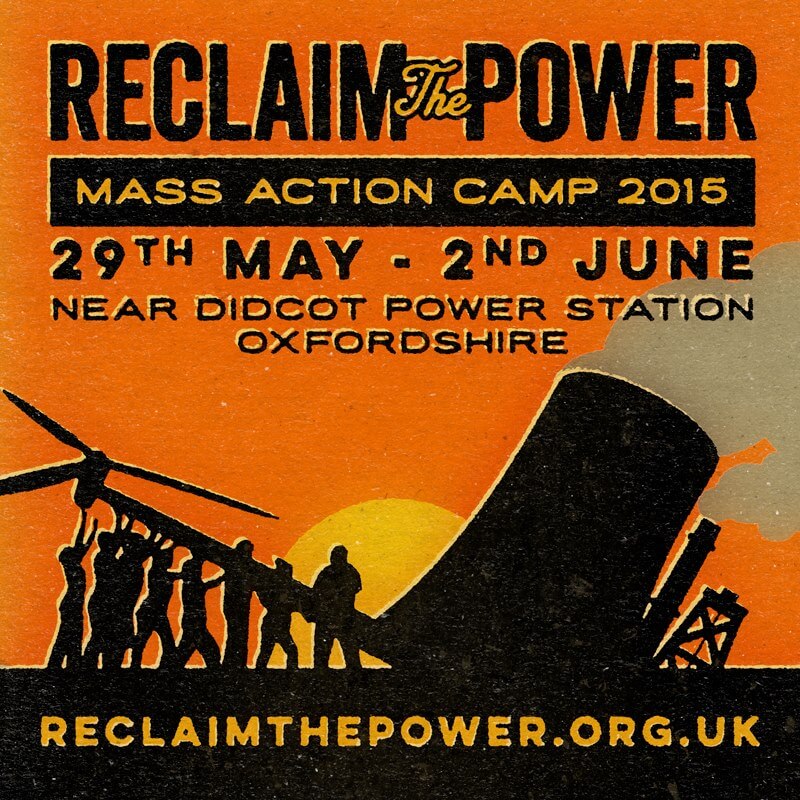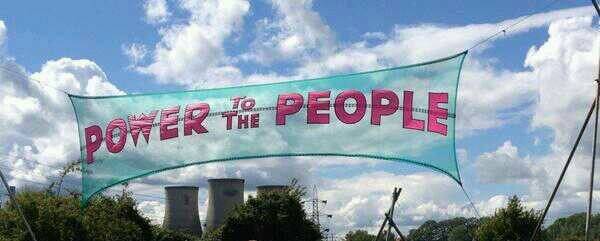To build energy democracy we need to break the control of corporations over our energy. Companies like BP and Shell and the Big Six play an enormous role in determining which fuels are used to generate energy, how much we pay for electricity, and where the profits go. These big companies work hard to convince us that they are essential to the functioning of modern society: how could we cope without petrol, gas heating or BP sponsoring the Tate? But while they dominate, fuel poverty and climate change will remain the norm. 
But what does the alternative look like? Energy democracy comes in many shapes and sizes – and works best when combining solutions at different scales. It mean more than a small-scale off-grid utopia – although off-grid systems, with individual homes powered by solar or wind can play a part. Other local projects – like a multitude of small-scale energy cooperatives spread across the country can boost local control and collective self-reliance.
At a more regional scale, borough-run electricity grids and county-council owned energy companies are needed, giving larger public control over infrastructure, and ensuring that marginalised groups with less access to resources aren’t excluded.
And a national level, energy democracy means creating public bodies like a National Offshore Wind Company. Britain has enormous offshore wind potential. We can’t let private multinationals once again pick off and privatise collective energy resources, as happened with North Sea oil & gas. The benefits of offshore wind should reside with the public. A national offshore wind company could return some of its profits to an Offshore Wind Fund, modelled on Norway’s Oil Fund – which could recycle investment back to small-scale community renewables.
Energy democracy means spreading control across counter-vailing institutions and networks, with an interest in challenging over-centralisation or private appropriation of power. It means staying grounded in a politics that is sensitive to autonomy and local variation, and committed to decentred decision- making.
How do we pay for it?
Once public infrastructure is up and running, this can provide an income to reinvest. But how to build initial infrastructure, without going begging to the City or mortgaging our future?
Under the ‘Polluter Pays’ principle, it’s legitimate to expect large fossil fuel companies to pay for part of the transition.
But we can also start by reclaiming public wealth. Billions of pounds invested through City firms and usually perceived as ‘private’ are ultimately public. For example, local authority pension funds have £180 billion in holdings. Much of this is “invested” into fossil fuel, arms, tobacco and tax dodging companies. BP, Shell and BHP Billiton are often amongst the largest individual shareholdings. Other than a return on investment, these don’t serve local residents. They don’t support the local economy, boost jobs, improve housing. Instead, wealth is extracted from local communities, transferred to financial companies in London, and handed over to multinationals. Extractivism once again.
But local councils can assert control over this wealth, taking it back from the City and the corporate advisers. Instead, these pensions can be used to rebuild in the ruins of neoliberalism, by financing local energy provision, public transport, new council housing and renewable electricity. In the longterm these are safer and more secure investments than fossil fuels.
This isn’t pie in the sky thinking. The Borough of Islington’s pension fund is putting £150 million into social housing, while Lancashire invested into community renewables.
It’s a sensible strategy, that makes finance serve the public not vice versa. We can start building energy democracy from the ground up and to create a future beyond austerity.
It’s also a path to building a bigger movement. The climate divestment movement is large and growing. But to win on climate change, we need to be massive. When we’re fighting not just against fossil fuels but for better housing, transport, public services and energy – when we’re fighting both against disaster and for a better society – then “we” can become almost all of us.
This blog is based on a plenary speech that Mika gave at Reclaim the Power in Didcot. We explore these ideas further in our essay Energy beyond Neoliberalism.
We’ve been working with 350.org, Community Reinvest and Friends of the Earth Scotland on a campaign guide for local authority divestment & reinvestment. Available here – pdf can be downloaded shortly.
